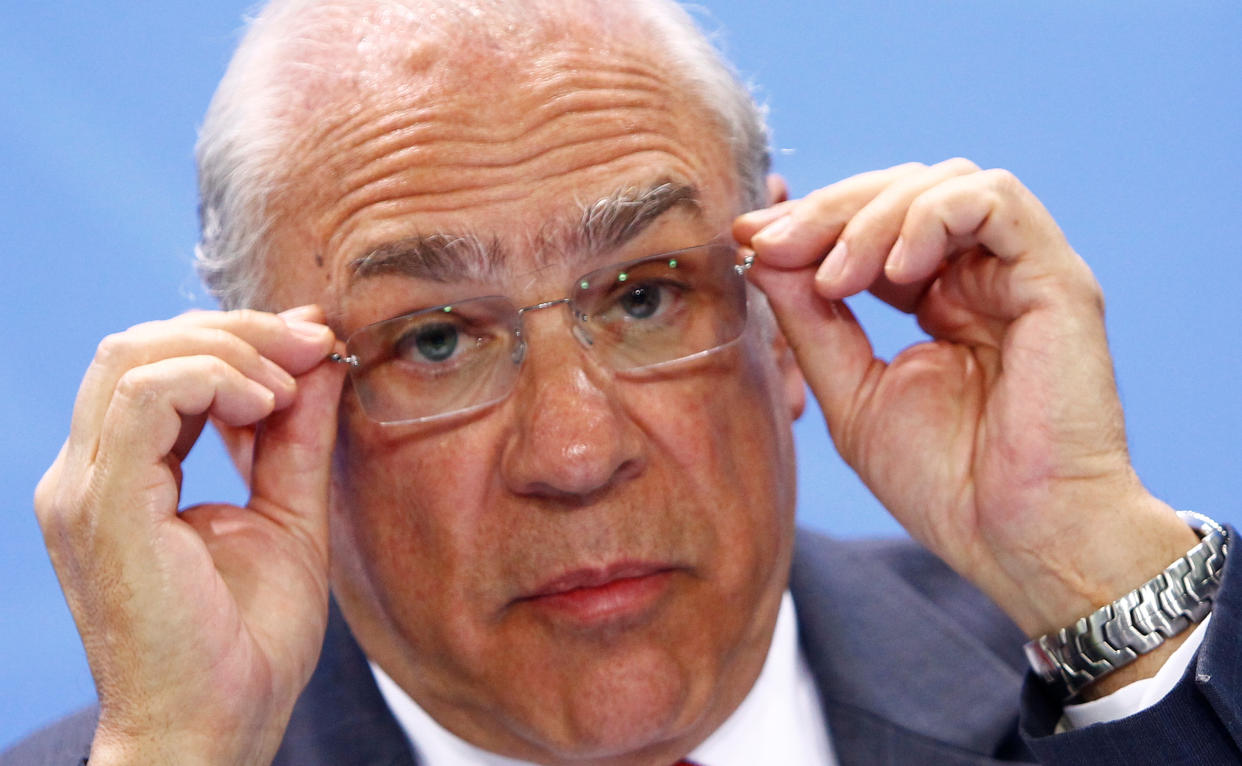UK told to ‘hold fire’ on big tech digital tax

The intergovernmental Organisation for Economic Co-operation and Development (OECD) has asked Britain to “hold fire” on a digital tax that would hit the world’s biggest tech companies.
The planned levy is a 2% tax on the UK sales of search engines, social media companies, and online marketplaces from April this year. It would likely hit US tech firms the hardest due their size and scale.
The OECD’s Secretary General Angel Gurria told press at the World Economic Forum (WEF) that there needs to be a global agreement otherwise it could spark countries implementing their own version of the tax as and when they want in a non-standardised way.
READ MORE: What is the digital services tax? How it impacts big tech companies and the US
The OECD, which is tasked with brokering a global compromise on how tech companies get taxed, is trying to prevent a transatlantic trade war and further warned that without a global agreement, it could risk "a cacophony" with countries doing their own thing amid "tensions rising all over the place.”
The UK Treasury said in a statement: “We've committed to introduce our Digital Services Tax from April 2020. It will be repealed once a global solution is in place.”
In mid-December last year, UK prime minister Boris Johnson declared that he would stick to his Conservative party’s pledge to further tax tech giants to ensure they pay their "fair share" of tax.
"On the digital services tax, I do think we need to look at the operation of the big digital companies and the huge revenues they have in this country and the amount of tax that they pay,” he said.
"We need to sort that out. They need to make a fairer contribution."
In the same week, , a report accused the ‘big six’ tech firms — Amazon (AMZN), Facebook (FB), Google (GOOG), Netflix (NFLX), Apple (AAPL) and Microsoft (MSFT) — of “aggressively avoiding” $100bn of global tax over the past 10 years by moving sales and profits through low-tax countries and tax havens — such as Bermuda, Ireland, Luxembourg, and the Netherlands.
READ MORE: PayPal CEO: 'Ethical and moral' duty put staff ahead of shareholders
The UK’s move followed in line with France which imposed the new law in the same month. It was set to retroactively go into effect from early 2019 and would apply to any digital company with sales of more than €750m (£670m, $850m), in which 30 companies are expected to be affected.
However, at the WEF conference in Davos, Switzerland this week, reports surfaced that the French Government will delay its tech tax to until the end of the year. This has yet to be confirmed.
Since the spate of countries looking to implement a digital services tax, the US government has hit out several times at the move and has caused concerns over a trade war.
Initially in response to France taking the first step towards a digital services tax, the US government claimed that it unfairly affects US companies and, in retaliation, the Office of US Trade Representative released a list of the French items that face tariffs at rates up to 100% — which include make-up, cheese, and handbags.
This week, US Treasury Secretary Steve Mnuchin told The Wall Street Journal that countries, like the UK will "find themselves faced with President Trump's tariffs. We'll be having similar conversations with them.”
READ MORE: Billionaire Salesforce founder: 'Capitalism as we know it is dead'



